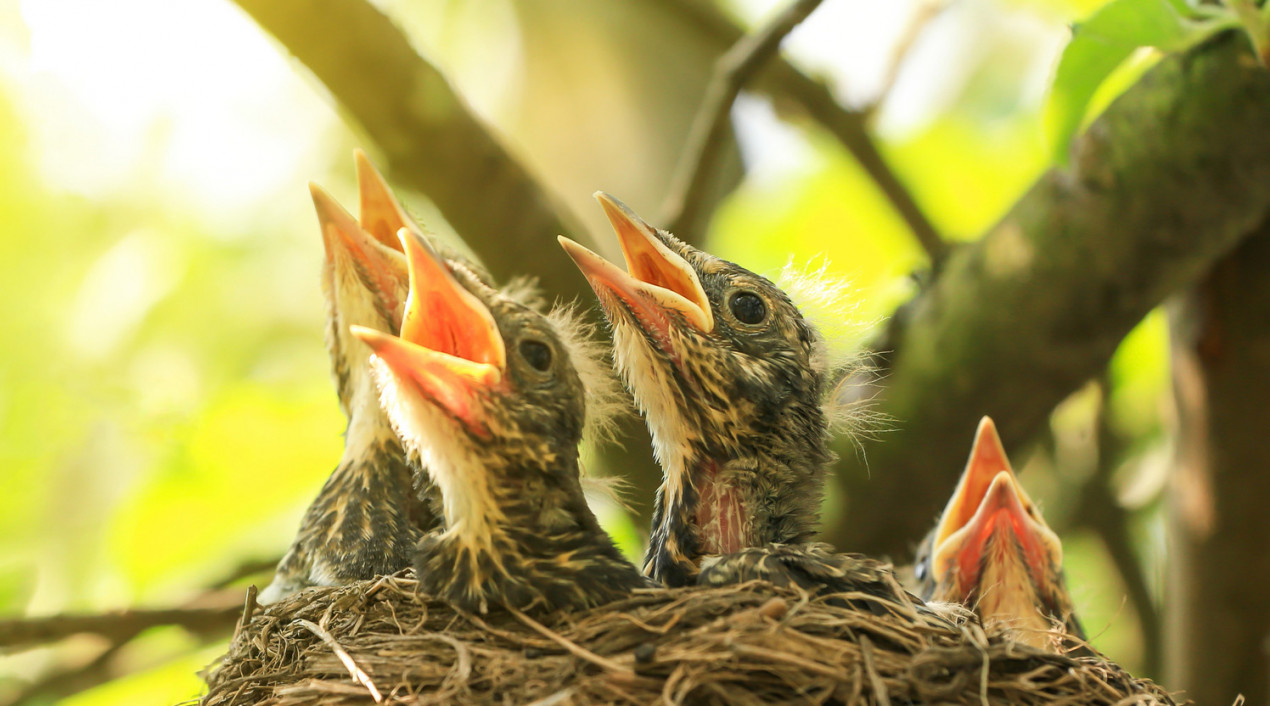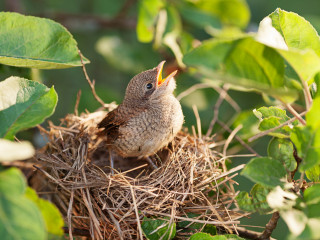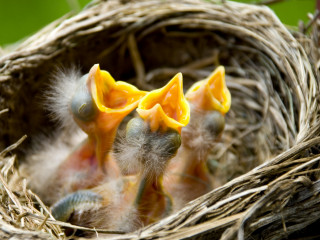
Is a baby bird out of nest safe?
At Vets Now, we receive a lot of calls from members of the public worried that they have found a baby bird out of its nest.
When we spot such small, vulnerable creatures alone on the ground our first instinct might be to pick them up and care for them. However, this isn’t always the best thing to do and can actually reduce their chance of survival. Well-meaning people might think they are rescuing a baby bird by picking it up, but most of the time it is better to leave it alone.
What to do with a baby bird on the ground
If you come across a baby bird on the ground, the first thing to do is look at the number of feathers it has, as this will generally determine the course of action you take.
There are two types of baby bird – fledglings and nestlings. Fledglings have already grown feathers and in most cases it is perfectly natural for them to leave the nest shortly before they learn to fly. Nestlings, on the other hand, have few or no feathers and can’t survive outside of the nest.
If you find a nestling, or an injured or unwell fledgling, it is best to seek advice from a wildlife rescue organisation.
I've found a baby bird that needs help, who should I call?
If you believe that a baby bird is injured or in danger, contact your local wildlife rescue centre or organisation, for example:
- The RSPCA in England and Wales
- The Scottish SPCA in Scotland
- The USPCA in Northern Ireland

I've found a baby bird that has feathers, should I move it?
Baby birds that have already grown feathers should usually be left where they are. It is natural for fledglings to leave the nest and spend a couple of days on the ground just before they learn to fly.
They might appear to be a bit clumsy, but it is all part of the learning process. The parents are probably nearby watching their young’s first attempt at flying.
Removing a fledgling should always be a last resort, for example, if the bird is injured or has been abandoned or orphaned. If you think this is the case, contact a wildlife rescue centre for advice.
I've found a baby bird with no feathers, should I pick it up?
Baby birds with very few or no feathers are known as nestlings. They are very young and can’t survive outside of the nest.
If the nestling appears to be healthy, and you are certain which nest it has come from, you can return it to its nest wearing suitable gloves. Be gentle and take care not to disturb the other nestlings.
You should not return a nestling to its nest if it is injured or unwell. Not only might it need medical attention, but it might have been rejected from the nest and returning it will do more harm than good. Instead, contact a wildlife rescue centre for advice.

How to handle a baby bird
If you find yourself in a situation where you have no choice but to move a baby bird – for example, if a fledgling is injured or it’s not clear which nest a nestling has fallen from- use suitable gloves to gently pick it up and place it in a ventilated cardboard box lined with towel, paper towels or newspaper. Then, safely transport it to your local wildlife rescue centre.
Will baby birds be rejected by their mother if I touch them?
No, it’s a myth that birds will abandon their young if they have been handled by a human.
How will I know if a baby bird has been abandoned or orphaned?
It’s best to monitor the situation from a distance and wait a couple of hours to see if the parents return. If, after this time, you still suspect that the bird has been abandoned or orphaned, call your local wildlife centre.
Keep in mind that it is highly unlikely that a fledgling has been abandoned by its parents. They are likely to be nearby collecting food and keeping an eye on their baby. However, they won’t return to their young until you leave.
How to save a baby bird if it's in danger
If a baby bird is in immediate danger, or in a dangerous location, such as a road or busy walkway, gently pick it up and move it to a safer location that is:
- sheltered
- out of reach of predators
- within hearing distance of where you found it
A hedge or tree could be a good option.

